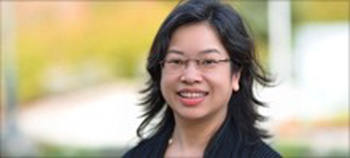Online Learning Assessments: Authenticity, Integrity and Practicality
Content
Online Learning Assessments: Authenticity, Integrity, and Practicality. This workshop covers a wide variety of assessment strategies that provide opportunities for students to demonstrate their learning in online courses. We will discuss an online assessment design framework that will help you create more authentic, valid, and flexible assessments. The workshop facilitators will also offer suggestions and advice for transitioning existing assessments online, including communication with students, potential time adjustments, and other logistical considerations.
Learning goals
During this session, participants will work toward the following learning goals.
- Clearly explain what learning looks like in their course(s). (What do you want students to achieve?). What evidences do you need to know that they learned? How do you gather these evidences?
- Reflect on how well existing course assessments are performing in terms of their validity, reliability, alignment, academic integrity, flexibility, accessibility, and authenticity.
- Describe the advantages and challenges of using one of the assessment methods presented in the workshop.
- Apply the online assessment framework to revising the assessment strategy for your online course.
Time participants will need to invest before the workshop
We will ask participants to gather and review some of the assessments they have used in the past, which will take less than 30 minutes.
Target audience
Post-secondary educators, especially science, technology, engineering, and mathematics focussed. Workshop will not cover assessment of lab or practical skills.
Date
March 15, 2021 04:00 PM - 07:30 PM (online)
This workshop is held in English.
Facilitators
Judy Chan, Ph.D.
Judy is an educational consultant and faculty liaison between the University of British Columbia Faculty of Land and Food Systems and the Centre for Teaching, Learning and Technology. She develops programs for faculty members, post doc fellows, and staff to support their teaching and learning needs. She has special interests in using cases and problems in teaching, open education, collaborative learning, and community-based learning. Judy calls herself a milk protein chemist and explores various food science topics with her students in an introductory food science course she teaches.
Hailan Chen, Ph.D.
Hailan is an educational consultant in learning design at the Centre for Teaching, Learning and Technology at the University of British Columbia. She is a skilled Instructional Designer, Educational Technologist, and e-Learning Specialist, with more than 10 years of experience working at Teaching and Learning Centres with different higher education institutions. Hailan manages the development and delivery of quality online learning courses and projects, and is interested in working closely with faculty members to apply sound instructional design principles to their online learning courses. She ensures that course design and development meet best practice standards, accommodate for diverse learners, and incorporate appropriate educational technologies in facilitating and assessing active student learning.
Jaclyn Stewart, Ph.D.
Jackie is an Associate Professor of Teaching in the Department of Chemistry and the Deputy Academic Director at the Centre for Teaching, Learning and Technology at The University of British Columbia. She has taught general and organic chemistry since 2005 and science communication since 2010. Her doctorate is in educational psychology and her research interests span the areas of self-regulated learning and emotions, assessment, and inclusion. She is passionate about helping students learn to use research-tested study strategies and supporting faculty to adopt evidence--based instructional methods.



